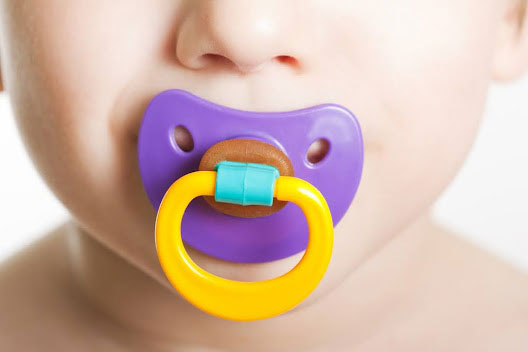 Anyone who knows babies and small children understands that they love to put things in their mouths, a preference that can lead to choking hazards and other health risks. However, you might not also realize that such ordinary childhood habits, such as sucking their thumbs and using pacifiers, can promote dental health challenges.
Anyone who knows babies and small children understands that they love to put things in their mouths, a preference that can lead to choking hazards and other health risks. However, you might not also realize that such ordinary childhood habits, such as sucking their thumbs and using pacifiers, can promote dental health challenges.
Although occasional thumb-sucking and limited pacifier use may soothe a young child without doing immediate harm, the risks of certain dental complications increase the longer these habits continue. Look at five essential things every parent should know about thumb-sucking and pacifiers.
1. Why Children Suck Their Thumbs
Babies develop the sucking instinct even before birth, with fetuses frequently sucking their thumbs in the womb during gestation. This inborn reflex may continue to impart a soothing effect on a baby or small child, offering an instant source of comfort and calm.
You may see this habit come into play whenever your child seems distraught, confused, afraid, in a strange or troubling environment, or just feeling generally fussy. Babies also tend to suck their thumbs around bedtime as a peaceful prelude to falling asleep.
2. How thumb-sucking Affects Dental Health
Some children suck their thumbs more aggressively than others. Many children will feel content simply to hold the thumb in the mouth, while others may suck on the thumb so hard that you hear a popping noise when the thumb finally comes out. The more intense the habit, the greater the risk of associated dental problems.
All the negative pressure from constant, aggressive thumb-sucking can influence the way your child's permanent teeth eventually grow in. For instance, thumb-sucking often leads to an open bite, a condition in which the top and bottom front teeth don't touch when children close their jaws. The bottom teeth may also point inward.
thumb-sucking can affect other parts of the mouth as well as the teeth. Some children may develop a hypersensitive roof of the mouth, while others may experience changes in their jaw structure that go on to affect their speech and bite.
3. Why Pacifiers Can Do Harm as Well as Good
Pacifiers share some points in common with thumb-sucking as a means of self-comfort for a baby. In fact, pacifiers can provide several benefits early in life. For example, a pacifier can help you wean your baby from breast or bottle feeding to solid food more easily. Pacifiers may even reduce the risk for sudden infant death syndrome (SIDS).
However, too much of a good thing can turn it into a bad thing, as pacifier use amply illustrates. Many children who make a habit of pacifier use end up with the same kinds of dental alignment issues as thumb-sucking children, from an open bite to jawbone changes. Pacifiers may even promote pediatric cavities, gingivitis, and gum recession.
4. What You Can Do to Prevent thumb-sucking Problems
Your child's thumb-sucking habit may resolve itself, with no need for intervention. The majority of children give up thumb-sucking by the age of seven months, while the rest commonly stop sucking their thumbs somewhere between age two and age four. However, dental complications can develop even during the first year.
If you want to catch a potential dental problem related to thumb-sucking, schedule those recommended pediatric dental exams. Your pediatric dentist may catch early signs of trouble that you might not detect. To minimize the risk of later-life dental problems, break your child's thumb-sucking habit if it extends beyond the age of four.
Because children often suck their thumbs in response to anxiety, take note of when and why your child engages in the habit. You might get the thumb-sucking under control by removing or controlling the circumstances that create the anxiety.
Positive reinforcement can help break a thumb-sucking habit. Offer praise when your child resists thumb-sucking, especially in the face of the usual triggers. You might even apply thumb guards to your child's hands as a gentle reminder to avoid the habit, or you can ask your dentist to talk to an older child about thumb-sucking risks.
5. When to Discontinue a Child's Pacifier Use
Since pacifier use can offer the significant health benefits noted above, you may not want to discontinue this habit in your baby too early. However, the American Academy of Pediatric Dentistry recommends that children stop using pacifiers altogether by the age of three.
You should find it easier to break your child's pacifier habit than a thumb-sucking habit simply because you can take the pacifier away. Start by discreetly hiding the pacifier when convenient. If your baby gets upset, try offering other soothing distractions such as a rattle or favorite toy.
The compassionate professionals at Dentistry for Children & Adolescents can monitor your little one's tooth alignment and overall dental health during the first formative years of life while also advising you on how to prevent thumb-sucking and pacifier use from creating problems. Contact us to learn more.
